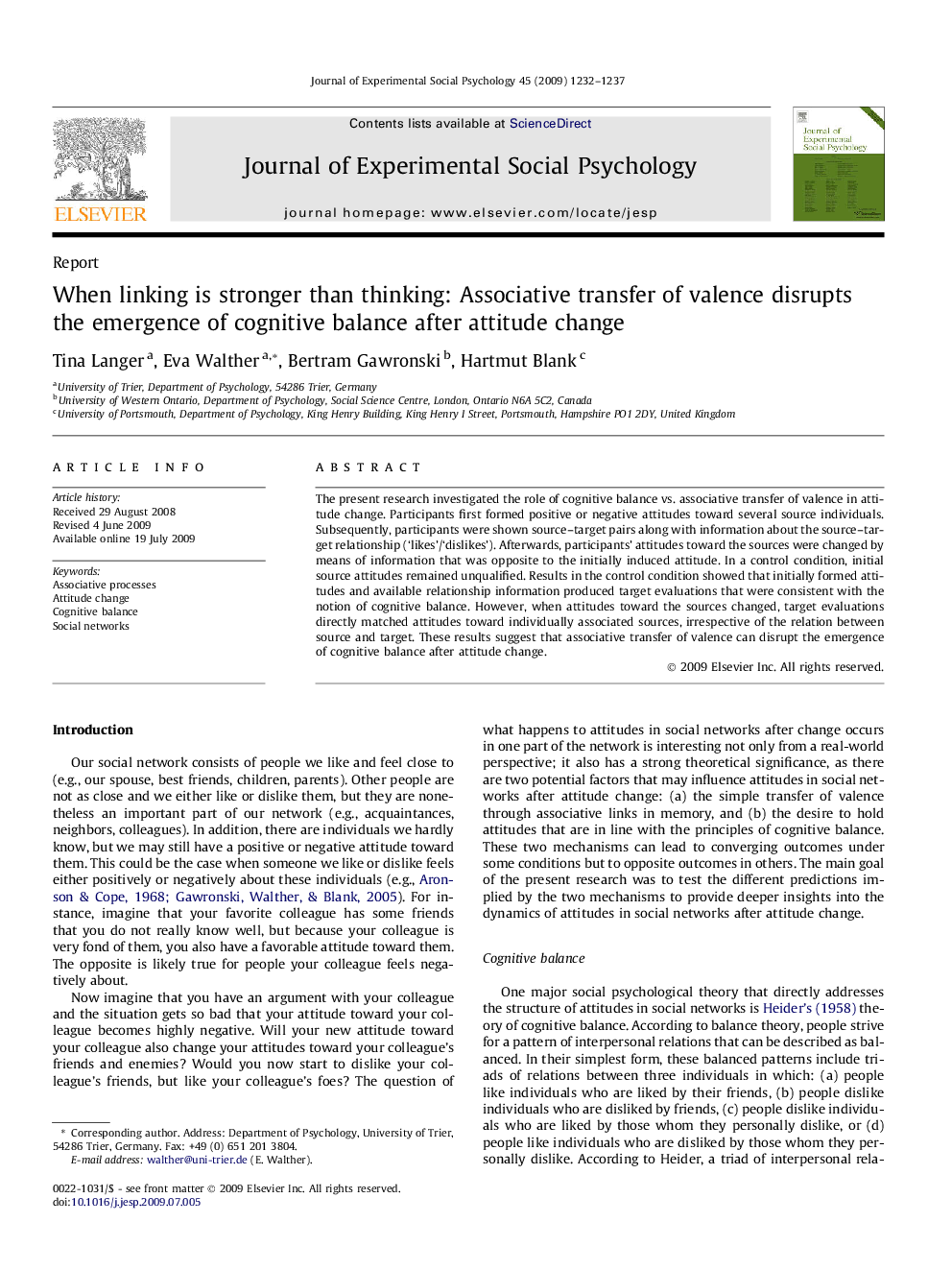| Article ID | Journal | Published Year | Pages | File Type |
|---|---|---|---|---|
| 948732 | Journal of Experimental Social Psychology | 2009 | 6 Pages |
The present research investigated the role of cognitive balance vs. associative transfer of valence in attitude change. Participants first formed positive or negative attitudes toward several source individuals. Subsequently, participants were shown source–target pairs along with information about the source–target relationship (‘likes’/‘dislikes’). Afterwards, participants’ attitudes toward the sources were changed by means of information that was opposite to the initially induced attitude. In a control condition, initial source attitudes remained unqualified. Results in the control condition showed that initially formed attitudes and available relationship information produced target evaluations that were consistent with the notion of cognitive balance. However, when attitudes toward the sources changed, target evaluations directly matched attitudes toward individually associated sources, irrespective of the relation between source and target. These results suggest that associative transfer of valence can disrupt the emergence of cognitive balance after attitude change.
